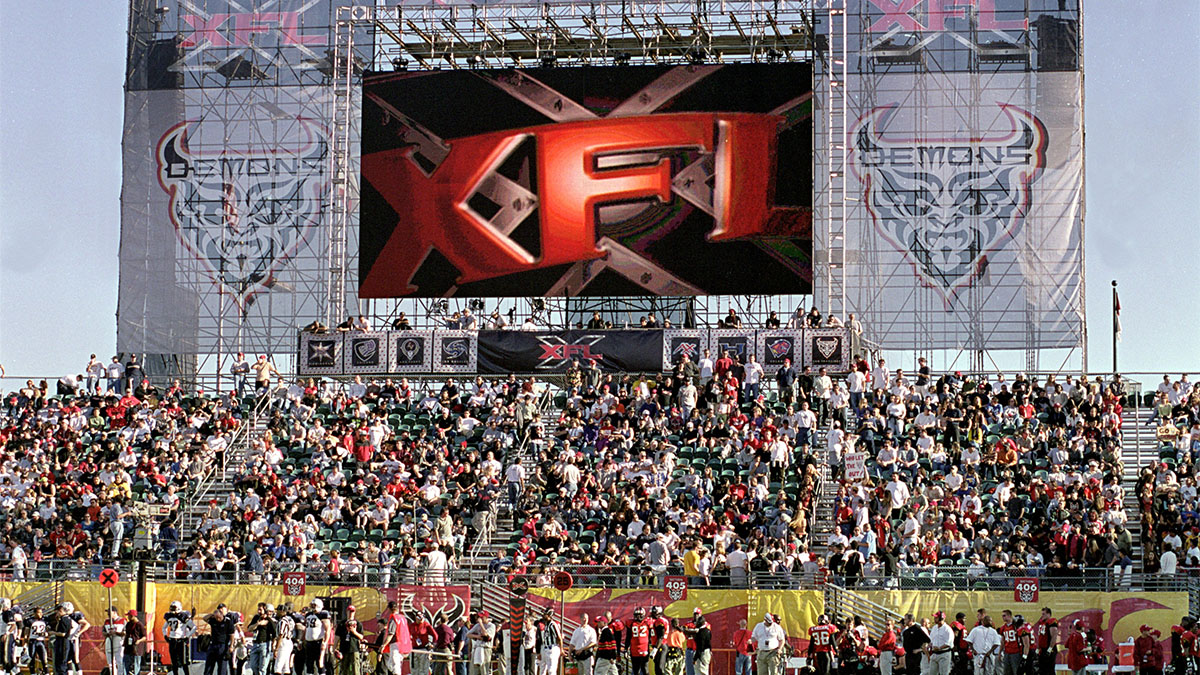XFL putting focus on health in relaunch

Medical experts in neurology, orthopedics and mental health will work together on a health advisory board for the XFL, a football league set to restart in February 2020.
When the XFL played its only season in 2001, founder and CEO of the World Wrestling Entertainment (WWE) Vince McMahon wanted the league to be more violent than traditional football. He removed rules such as fair catches on punts and plays ending when a quarterback was in the grasp of a defensive player. This emphasis on player health signals a new direction for the league’s relaunch.

The first members named to the advisory committee were Dr. Julian Bailes, Dr. Larry Lemak and Dr. Claudia Reardon. Daniel Wright, former head athletic trainer for the Milwaukee Brewers and a 30-year National Athletic Trainer’s Association veteran, will serve as vice president of health and safety. He will work with the advisory board to create league policies, protocols and procedures.
“The health and safety of our players is an important focus on our path to reimagine football and deliver a great product to fans when we kick off in February 2020,” said XFL Commissioner and CEO Oliver Luck. “Putting in place the right experts and medical professionals is key. Our health advisory committee will work closely with our football operations department to create protocols and build best practice guidelines that put player health and safety at the forefront of everything we do.”
Bailes is chairman of the Department of Neurosurgery at NorthShore University HealthSystem, co-director of NorthShore Neurological Institute in Evanston, Ill., and was the Pittsburgh Steelers’ team physician for a decade. He also is the director of the Brain Injury Research Institute, where he works with co-director Dr. Bennet Omalu to research chronic traumatic encephalopathy. Omalu identified the first evidence of the disease during an autopsy of Steeler Mike Webster in 2002.
Lemak founded an orthopedic and primary care health center for sports medicine and previously served on Pop Warner Football’s Medical Advisory Committee. He spent 20 years as Major League Soccer’s medical director and 15 years in the same role for the NFL Europe League.
Reardon is a psychiatrist specializing in sports psychiatry and an associate professor at the University of Wisconsin School of Medicine and Public Health Department of Psychiatry. Her clinical work involves working with the UW-Madison Athletics Department and its University Health Services, but she also has served on the International Society for Sports Psychiatry Board of Directors since 2010.
According to SportTechie, the XFL has spent time leading up to its inaugural season on research and development, with a focus on player health. This includes continued tests of the league’s rules, which differ in some areas from the NFL. Now that the league has a health advisory board, its members will play a role in that research and development.
Jason Krell is a masters of sports journalism student at Arizona State University
Editor’s note: For the coming 2019-2020 academic year, the Global Sport Institute’s research theme will be “Sport and the body.” The Institute will conduct and fund research and host events that will explore a myriad of topics related to the body.
Related Articles
ASU researchers create messages to improve concussion reporting
New study says classic concussion treatment may not be effective
Football takes a back seat to cycling when it comes to head injuries
Playing impact sports in high school can cause ‘significant’ changes in brain
Conflicting research on CTE shows need for more study
New research, technology aimed at minimizing concussions
Study shows brain changes in football players could be from learned hand-eye coordination skills
Baseline concussion testing keeps athletes game ready


